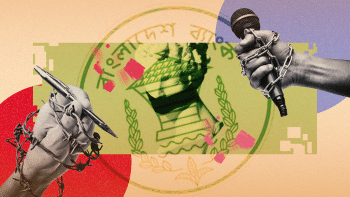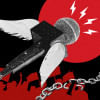Ending impunity for crimes against journalists

It was somewhat ironic. I was attending the UNESCO conference in Addis Ababa, Ethiopia, to commemorate the 2024 International Day to End Impunity for Crimes against Journalists (IDEA) at a time when, in Bangladesh, the highest number of journalists in our history had been accused of "murder," with four of them being in jail. These charges are so farcical and unfounded that the credibility of the interim government may now come under question. Thankfully, this topic did not come up at the conference.
What came out in the UNESCO conference is that violent crimes against journalists were on the rise, especially in conflict zones where journalists not only faced violent attacks but were targeted in many places by the contending fighting forces who enjoyed complete impunity from their respective governments. The killing of journalists in Gaza by the Israeli army is by far the worst example in recent history. According to various sources such as The Guardian and NBC News, as of November 5, around 134-147 journalists and media workers, including 120 academics and over 224 humanitarian and aid workers have been killed. The silence or very muted reaction to these crimes against journalists by the Western media and media protection bodies has indeed been shameful, to say the least.
A joint paper presented by UNESCO and the African Union at the conference stated that, "Too many (journalists) pay unacceptably high prices, including death, enforced disappearances, torture, unlawful detention and kidnapping for producing independent, reliable and verifiable information." In conflict areas, journalists being killed have doubled in the 2022-2023 period, reversing a five-year trend of improvement. This has happened mostly in Africa (Gaza incidents are not included here) where, in the 2023-2024 period, 14 journalists have been killed, predominantly in countries experiencing conflict. According to Reporters Without Borders (RSF), in 2024, 14 journalists have been disappeared in the same region and 32 journalists have been detained. In 12 sub-Saharan African countries, at least 47 journalists have been detained on charges of defamation, censorship violation, anti-state news reporting, religious insults, etc.
A new reality is emerging for journalists covering environmental issues. Just as climate-related disasters are becoming more frequent, journalists reporting on them are facing serious threats and challenges to their work. In May 2024, for World Press Freedom Day, UNESCO released a report revealing that 70 percent of journalists covering environmental issues have been attacked in connection with their work.
The situation for journalists in Bangladesh is similarly disheartening. Between 1992 and 2024, 26 journalists were killed according to the Committee to Protect Journalists (CPJ). None of these cases have seen justice completed. As Zyma Islam from this daily reported, "…in the last two and half decades, cases filed over murders of at least 13 journalists have apparently got lost in the annals of time. The stories are the same for all of them—investigations navigating through a labyrinthine judicial mess, never ending probes and traceless culprits—all in all, complete impunity."
Since the change in government in August, a new cause for worry has descended upon journalists—sweeping murder charges. In my column published a month ago, I wrote, "…cases have been filed against 129 journalists in Dhaka, Chattogram, Bogura and Rajshahi" on various charges of murder, attempted murder, etc. Although mass filing of cases against journalists has now stopped, those who have already had cases filed against them remain victimised. Though they are not imprisoned, their livelihoods have been severely impacted, with some experiencing complete professional destruction. Life is particularly difficult for journalists in district and upazila towns. They live under constant fear of being picked up by the police or being physically assaulted by their political opponents and professional rivals. Daily life for their families has also been affected, including those of their children who fear going to schools or sitting for examinations.
In the midst of it all, Asif Nazrul, our law adviser, commented a few days ago that, "the wholesale filing of cases is embarrassing the government." He said that common people, particularly the political victims and rivals of the previous regime are the ones filing these cases, not the government—as was common under the previous regime. However, any indication that such wholesale case filing, even if they are not being done by the government, will be stopped or at least examined in some way before being filed, was missing in his statement. As someone closely connected with the world of journalism himself, especially as a columnist, we expected—and still hope—that he would take action against these fictitious murder charges against journalists.
The CEO of the Committee to Protect Journalists (CPJ), Jodie Ginsberg, recently emailed Chief Adviser Prof Muhammad Yunus to raise some important issues which should be mentioned in this column. The first is the call for "an immediate moratorium on repressive laws that undermine Bangladesh's constitutional obligation to protect freedom of expression and press freedom—including criminal defamation under the Penal Code and the colonial-era Official Secrets Act of 1923—pending their repeal or amendment in line with international human rights standards."
This would be an important step to take at the start of Bangladesh's new journey, reflecting a strong commitment to freedom of expression and the media. Our history has shown that whenever we have the chance to begin anew, we often dwell too much on the past and too little on the future. This time it appears different as Prof Yunus's government has established six new reform commissions, including one on media, to suggest forward-looking changes. We expect the media reform commission will create a legal framework to clarify the freedoms and autonomy of media institutions, making media freedom a lasting element of Bangladesh's future.
We also endorse CPJ's suggestions for the "withdrawal or dismissal of hundreds of criminal cases lodged against journalists in retaliation for their work." Many cases filed by the previous government were purely political, aimed at punishing specific media outlets or journalists. These should be dismissed immediately. With the repeal of the Cyber Security Act, the withdrawal of such cases should be straightforward.
As for the murder cases filed under the current government, efforts should be made to review and dismiss those without evidentiary basis. Such actions would significantly enhance the present government's commitment to a free press.
Though the signals are mixed—the recent withdrawal of accreditation for 167 journalists without explanation being the latest example—we still hope that the media in Bangladesh will see a new dawn and that the whole world of freedom of expression will finally flourish here.
Mahfuz Anam is the editor and publisher of The Daily Star.
Views expressed in this article are the author's own.
Follow The Daily Star Opinion on Facebook for the latest opinions, commentaries and analyses by experts and professionals. To contribute your article or letter to The Daily Star Opinion, see our guidelines for submission.

 For all latest news, follow The Daily Star's Google News channel.
For all latest news, follow The Daily Star's Google News channel. 







Comments